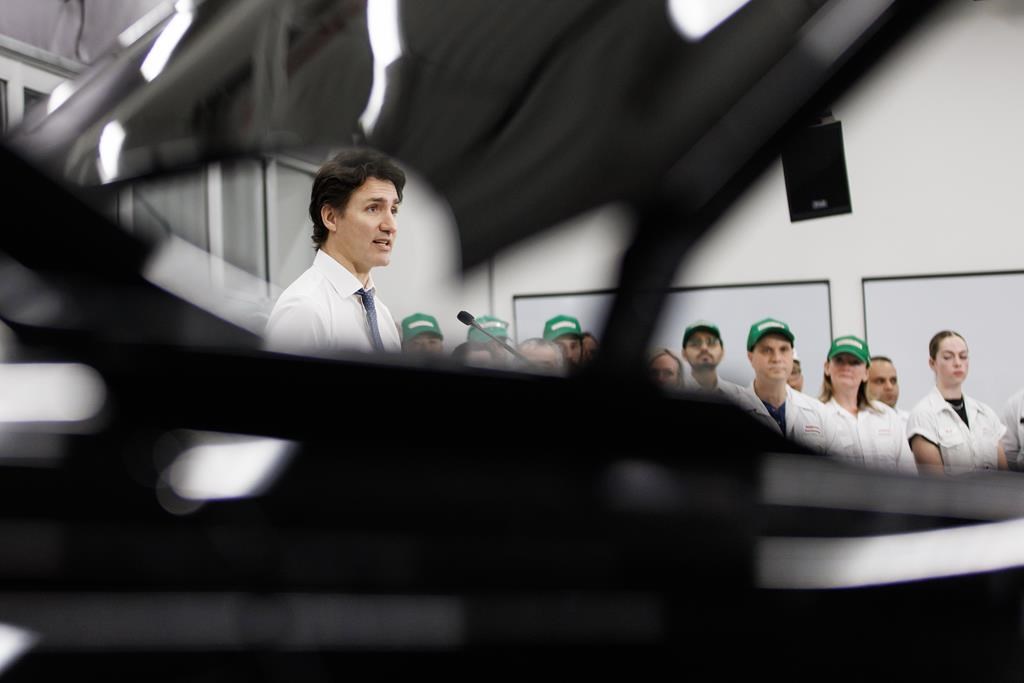Despite winning richer contracts, not all auto workers embrace spirit of compromise
Posted November 23, 2015 1:16 pm.
Last Updated November 23, 2015 2:00 pm.
This article is more than 5 years old.
DEARBORN, Mich. – The United Auto Workers union started the year with a roar. It’s ending with a grumble.
With Detroit automakers profitable once again, the union promised workers big gains in its new contracts with Ford, General Motors and Fiat Chrysler. At a convention in March, UAW President Dennis Williams raised a fist and proclaimed, “It’s our time.”
But while the contracts completed in the past few weeks contain generous wage increases and profit-sharing, passage was surprisingly difficult. Many dissenters said the leadership failed to win back enough of the painful concessions they made when the automakers were struggling.
The divide is a symptom of the fine line the union walks in a global market, trying to improve pay without losing U.S. jobs or making Detroit’s automakers uncompetitive with foreign rivals such as Toyota and Nissan. The UAW holds out hope of organizing foreign competitors’ U.S. plants, so the union touts its willingness to compromise over the hardball tactics of the past.
Art Schwartz, a former head of labour relations for GM, says the UAW should have done a better job setting members’ expectations.
“These are very good contracts,” he says. “You don’t get everything back. That’s why it’s collective bargaining.”
Gary Walkowicz, a union bargaining committee official and frequent critic of UAW leadership, disagrees. “The idea was in times that were better we’d be able to recoup some of the losses. This contract does not nearly do that.”
Fiat Chrysler workers rejected their first contract, forcing the union and company to sweeten the deal before they would ratify it. GM production workers narrowly ratified their contract, but skilled trades workers like pipefitters rejected it; after further negotiations, the union declared it ratified on Friday. Ford workers approved their contract late Friday by a razor-thin margin after an eleventh-hour PR push by the union.
The contracts promise wage increases for all workers — for some it’s the first pay hike in a decade. They eliminate a two-tier wage system in the plants and put newer workers on a path to earn the same $29-per-hour wage as veteran ones. That adds up to around $60,300 per year, higher than the U.S. median income of $53,657, and doesn’t include the profit-sharing and other bonuses auto workers will get. Ford, for example, will pay out $10,250 per worker in bonuses before the end of this year.
But the compromises that irk workers such as Walkowicz are starkly evident. The two-tier wage system — which the union agreed to in 2007 when the companies were near bankruptcy — is eliminated gradually; it will take the newest workers eight years to make what veteran workers make. Workers at some parts plants stay at lower wage rates.
The three companies pledged $23 billion in U.S. plant investments over four years, but they’re allowed to move some work to lower-cost countries like Mexico. And while the contracts offer profit-sharing payments, they don’t guarantee the annual raises and cost-of-living increases that workers used to enjoy.
Despite his occasional fiery rhetoric, Williams has said all along that the union must help the companies remain profitable. That message was partly meant for foreign competitors, which the UAW desperately wants to organize to boost its clout. The UAW currently has 403,000 members, a fraction of the 1.5 million it had at its peak in 1979.
Foreign automakers generally match the UAW’s wages but offer less lucrative benefits. Going into this year’s contract talks, Toyota and Honda’s U.S. labour costs were $8 to $9 less per hour than GM and Ford’s.
The new contracts will cost Detroit automakers $400 million to $500 million per year for the next four years, estimates Steve Brown, a senior director at Fitch Ratings. That’s manageable, he says, especially since U.S. auto sales are expected to remain strong.
Ford has made $6.6 billion in North America so far this year, while General Motors has made $8.3 billion and FCA has made $5.4 billion. Cost cuts elsewhere should make up for the increased labour costs, Brown said.
Bernie Ricke, the head of a big union local in Ford’s hometown of Dearborn, understands his workers’ frustration when they see those big profits. But he warns them that if U.S. labour gets too expensive, the companies will move production elsewhere.
“At the end of the day, if you get $50 an hour but you don’t have a job, it doesn’t mean anything,” he says.
Ultimately, the tough negotiations could be a positive for the UAW, says Gary Chaison, a professor of industrial relations at Clark University. They show the union can collaborate with auto companies, win strong wages and accommodate dissent.
“They’re saying, “We’re not going to ruin prosperity. We’re not going to kill jobs. We might even create jobs,” Chaison says.
___
AP Auto Writer Tom Krisher contributed from Detroit.










